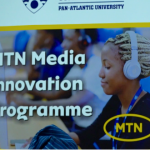DAAD United Nations University Doctoral Research Scholarship 2024 for Researchers
Table of Contents
When is Application Deadline?
23rd July 2023
Tell Me About Award:
The United Nations University (UNU) is an international community of scholars engaged in policy-oriented research, capacity development and dissemination of knowledge in furthering the purposes and principles of the Charter of the United Nations. The mission of UNU is to contribute, through research and capacity building, to efforts to resolve the pressing global problems that are the concern of the United Nations and its Member States.
For the past four decades, UNU has been a go-to think tank for impartial research on human survival, conflict prevention, sustainable development, and welfare. With more than 400 researchers in 12 countries, UNU’s work spans the 17 Sustainable Development Goals’ full breadth, generating policy-relevant knowledge to effect positive global change. UNU maintains more than 200 collaborations with UN agencies and leading universities and research institutions across the globe. For more information, please visit http://unu.edu.
United Nations University for Integrated Management of Material Fluxes and of Resources (UNU-FLORES)
UNU-FLORES develops strategies to resolve pressing issues in the sustainable use and integrated management of environmental resources such as water, soil, waste, energy, and other geo-resources that are of concern to the United Nations and its Member States – particularly in developing and emerging economies. Based in Dresden, Germany, the Institute engages in research, capacity development, postgraduate teaching, advanced training, and knowledge dissemination to advance the Resource Nexus. https://flores.unu.edu/
Doctoral Research
NEXtra, or “Resource Nexus for Sustainability Transformations” offers opportunities to conduct doctoral studies under joint supervision by experts from TU Dresden, UNU-FLORES and IOER. Under the EPOS- Development- Oriented Postgraduate Courses funding programme, the German Academic Exchange Service (DAAD) will support doctoral candidates (scholarships for 42 months, plus entitlement for a two-months German language course; for details of the scholarship, please refer to EPOS page of DAAD). From 2023 until 2030, we expect an annual intake of 7 to 8 scholarship-funded candidates.
Which Fields are Eligible?
The successful candidates will have the opportunity to conduct research work to advance the Resource Nexus and support the attainment of the Sustainable Development Goals. Selected students will be jointly supervised by experts from Technische Universitaet Dresden, UNU-FLORES and the Leibniz Institute for Ecological Urban and Regional Development (IOER), and enrolled in one of the Joint Doctoral Programmes of TU Dresden with UNU-FLORES, and/or the Dresden Leibniz Graduate school of IOER. Additionally, students will collaborate with and support the work of the United Nations Development System (UNDS) in their geographic area(s) of research focus, and engage with one or more entities of the UNDS via the Resident Coordinator System, which includes the United Nations Development Coordination Office (UN-DCO), its regional teams and the resident coordinator offices at the national level. As a facet of the NEXtra project, the selected students must design their research to consider its impact on communities and strive to translate their findings into policy advice and real-world application and solutions, which may be taken up by the UNDS in its efforts to support SDG achievement. In addition to the academic recruitment criteria, applications will be assessed on responsiveness to regional/sub-regional contexts and evidence-based needs. The NEXtra Doctoral Research offers the opportunity to study under one of the following topics. You may apply to a maximum of 2 subject-related topics. Separate proposals will need to be submitted in the same application.
Topic-related qualifications and descriptions can be found in the following document
- Topic 1: Sustainability Transformations in Post-Mining Regions: Applying the Resource Nexus to Coal Phaseout
- Topic 2: The Role of Vocational Education and Training for Promoting Sustainability in Industry
- Topic 3: Pathways for Resilient Agri-food Systems in Latin America – Design of the Resource Nexus
- Topic 4: Economic Potential and Spatial Economic Effects of the Green Hydrogen Industry in North Africa
- Topic 5: Using Beneficial or Endophytic Microbes to Increase Crop Plant Performance under Combined Abiotic Stress Factors
- Topic 6: Transdisciplinary Knowledge Integration for Systemic Sustainability Transformations in Regional Water Management
- Topic 7: Clean Water for Better Health: Predicting emerging antibiotic resistance in wastewater E. coli with machine learning
- Topic 8: Nexus Dilemmas on Urban-regional Deep Decarbonisation Pathways: Analytical perspectives and future place-based strategies
- Topic 9: The Role of Stakeholders in Corporate Biodiversity Management in the Middle East and North Africa (MENA) Region
- Topic 10: What to do – Translation of Water Monitoring Data for Decision-makers to Establish Sustainable Measures
- Topic 11: Mapping Citizens’ Perception for Sustainability Transition Research
- Topic 12: Water Stewardship in Industry: Challenges and Opportunities in Industrializing Countries of the Global South
- Topic 13: Social Inclusion and Gender Balance in Travel Behavior – A Comparative Study in India and Germany
- Topic 14: Energy Transition and Regional Resource Nexus: The Societal Dimension and Governance Requirements
- Topic 15: Novel Electronics with Low Environmental Impact
- Topic 16: Increasing Food Security by Predictive Irrigation Management based on Seasonal Forecasts in West Africa
- Topic 17: Financial Instruments to Enable Public and Private Sector Investment in Infrastructure for Sustainable Development
What Type of Scholarship is this?
PhD
Who can apply?
- Topic-related qualifications are listed in the Topic Description Document: NEXtra Topics 2024
- Excellent academic profile including a Master’s degree with an equivalent grade of 2.5 or better according to the German system;
- The Master’s degree must be completed at the beginning of starting the scholarship, but should not be older than six (6) years at the beginning of the doctoral research;
- At least two years of related work experience after the first academic degree (typically, Bachelor’s degree);
- At the time of the application deadline, applicants may not have been in Germany for longer than fifteen (15) months;
- Sound scientific background knowledge and methodological competencies that specifically relate to the selected topic;
- First experiences in conducting preferably trans-/interdisciplinary research (e.g., research-oriented master thesis, research, or consultancy-related employment);
- Strong interest and previous academic/ work experience related to at least one of the following three fields: (1) sustainability/ sustainable development; (2) development cooperation and/or (3) the Resource Nexus;
- Capacity to structure complex tasks; strong analytical abilities;
- Excellent writing skills and presentation skills;
- Strong planning, organisation and time management skills, with the ability to communicate clearly and efficiently in different contexts (e.g., academia, UN system);
- Must be flexible with the ability to establish priorities and work within prescribed timeframes;
- An excellent team player with strong interpersonal skills, demonstrated by the ability to work in a multicultural, multi-ethnic environment with sensitivity and respect for diversity;
- Demonstrated proficiency in English is required;
- Proficiency in the official language of your envisioned target country or region (in addition to English) would be highly advantageous;
- Knowledge of German and/or another UN official working language is an asset.
How are Applicants Selected?
Evaluation of qualified candidates will include a competency-based interview, background checks and references.
Which Countries are Eligible?
Not specified
Where will Award be Taken?
The successful candidate will be enrolled as a student based in Dresden, Germany.
How Many Scholarships will be Given?
3
What is the Benefit of Scholarship?
The DAAD-EPOS pays a monthly stipend of EUR 1,200 for the duration of the Doctoral Research (up to a maximum of 42 months). The stipend is expected to cover all living and education expenses. While the Doctoral programme is tuition-free, semester fees of approximately EUR 250-300 will need to be paid directly to TU Dresden for enrollment. The DAAD can also provide health insurance and introductory German classes. An additional allowance for travel or research will be part of the scholarship offered by DAAD. Details will be shared with nominated candidates.
The successful candidate will be enrolled as a student based in Dresden, Germany.
How Long will Program Last?
42 months
How to Apply for Scholarship?
To apply to UNU, you will not need an account. Instead, we ask that you:
- Apply via the apply line;
- answer a few questions that are tailored to the position; and
- Submit the following documents as one combined PDF file (Note: There is no need for a P11 form. Please only upload all the following documents in the upload location: “P11 Form file upload” on the Application page):
- Completed and signed EPOS Checklist: epos_checklist.pdf (daad.de) (including all documents listed)
- In addition to all the documents detailed in the EPOS checklist, please provide the following:
- Research proposal (max 13,000 characters including spaces, plus references) with the following sections: a) Background and motivation; b) State of the art and current scientific discussion; c) Research approach and methodology; d) Work plan; e) References.
- Abstract of your Master thesis (max 1 page)
- Reference letter from your academic supervisor, on official letterhead and signature.
- Copy of high school/ secondary school certificate
- Proof of internships (if any)
Candidates who do not provide all required documents will not be considered. Please note that only shortlisted candidates will be contacted.
You may wish to refer to the UN Values and Behaviours Framework for more information.









